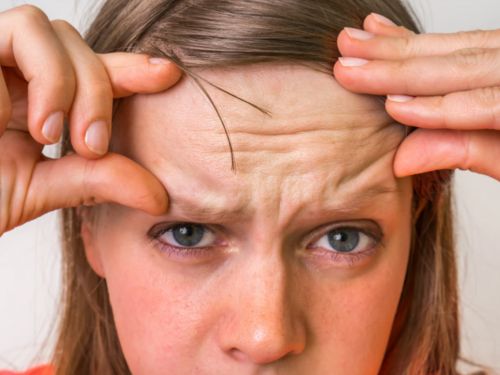Aging gracefully is not just about the creams we apply or the treatments we seek. While skincare routines, diet, and hydration play crucial roles, two often overlooked factors—sleep and stress—can dramatically influence how our skin ages. Lack of quality sleep and chronic stress accelerate the formation of wrinkles, fine lines, and sagging skin.
Conversely, prioritizing restorative sleep and effective stress management can support skin health, enhance elasticity, and slow visible signs of aging. In this article, we explore the science behind the connection between sleep, stress, and wrinkles, practical strategies for improvement, and ways to maintain youthful, radiant skin for the long term.
Understanding Wrinkles: How They Form
Wrinkles are creases, folds, or lines in the skin that develop as a natural part of aging. They form due to a combination of internal and external factors:
- Collagen and Elastin Breakdown: Collagen and elastin are proteins that provide structure, firmness, and elasticity to the skin. As we age, our production declines, leading to weaker skin that is more prone to sagging and fine lines.
- Sun Exposure: Ultraviolet (UV) rays from the sun damage collagen fibers and promote oxidative stress, accelerating wrinkle formation. Areas frequently exposed to the sun, like the face, neck, and hands, often show visible signs of aging first.
- Lifestyle Factors: Smoking, poor diet, dehydration, and lack of sleep all contribute to premature skin aging. These habits weaken the skin barrier, leaving skin less resilient and more vulnerable to fine lines.
- Repeated Facial Movements: Expressions such as smiling, frowning, or squinting create dynamic lines. Over time, these expressions may become permanent wrinkles if the underlying skin loses its elasticity.
While these causes are widely acknowledged, sleep quality and stress levels are often underestimated contributors to wrinkle formation. These factors influence the skin at a physiological level, affecting everything from collagen production to hydration and repair.

The Science Behind Sleep and Skin Health
Sleep is more than a period of rest. It is a time when the body engages in critical repair and regenerative processes. For the skin, this period is particularly important. Poor sleep or chronic sleep deprivation affects the skin in multiple ways:
- Collagen Production Declines: During deep sleep stages, the body produces growth hormones that promote collagen synthesis. Without adequate sleep, collagen production slows, which weakens skin structure, reduces elasticity, and accelerates the formation of fine lines and wrinkles.
- Increased Cortisol Levels: Sleep deprivation elevates cortisol, the stress hormone that breaks down collagen and elastin fibers. High cortisol levels also trigger inflammation, which dulls the complexion and can make wrinkles more noticeable.
- Reduced Skin Hydration: Inadequate sleep compromises the skin barrier, leading to moisture loss. Dry skin is more prone to fine lines and develops a rougher, less youthful texture.
- Delayed Repair and Regeneration: During sleep, skin cells repair DNA damage from environmental stressors like UV radiation and pollution. Chronic sleep deprivation interferes with this process, leaving the skin vulnerable to premature aging.
- Visible Effects of Poor Sleep: Even short-term sleep deprivation can create dark circles, puffiness, and a lackluster complexion. Over time, chronic sleep loss deepens wrinkles, particularly around sensitive areas like the eyes and forehead.
Research consistently shows a strong link between sleep and skin health. One study found that individuals with poor sleep quality had significantly increased signs of intrinsic aging, including fine lines, uneven pigmentation, and reduced skin elasticity.
The Link Between Stress and Wrinkles
Stress is another significant factor in the aging process. Chronic stress triggers physiological changes that directly impact the skin:
- Cortisol and Collagen Breakdown: As with sleep deprivation, stress increases cortisol production. Cortisol damages collagen and elastin, accelerating skin sagging and wrinkle formation, particularly in thinner areas like around the eyes and mouth.
- Inflammation: Chronic stress promotes systemic inflammation, worsening skin conditions like acne, rosacea, and eczema. Inflammatory responses also break down the extracellular matrix, which weakens the skin’s structure and elasticity.
- Impact on Skin Barrier Function: Under stress, the skin’s natural barrier is compromised, making it more susceptible to dehydration, sensitivity, and environmental damage. This accelerates the appearance of fine lines and uneven texture.
- Behavioral Effects: Stress often leads to unhealthy habits, such as smoking, excess alcohol consumption, poor diet, and irregular sleep schedules. Each of these behaviors contributes to premature skin aging.
- Facial Expressions: Stress induces repetitive facial expressions, such as furrowing the brow, frowning, or clenching the jaw. Over time, these expressions create dynamic wrinkles that may become permanent if skin elasticity diminishes.
Multiple studies have confirmed the connection between psychological stress and premature skin aging. People under chronic stress not only report visible changes in skin appearance but also demonstrate slower wound healing, lower skin resilience, and reduced barrier function.
Practical Strategies for Better Sleep
Quality sleep is foundational for maintaining youthful, resilient skin. Here are evidence-based strategies to improve sleep:
- Maintain a Consistent Sleep Schedule: Maintaining a consistent bedtime and wake-up time helps regulate your circadian rhythm. A stable sleep schedule ensures hormone balance and supports collagen production, which is critical for skin elasticity.
- Create a Restful Sleep Environment: A cool, dark, and quiet bedroom enhances restorative sleep. Blackout curtains, white noise machines, or calming scents like lavender can promote relaxation and deeper sleep cycles.
- Limit Exposure to Screens Before Bed: Blue light from phones, tablets, and computers interferes with melatonin production, delaying sleep onset. Disconnecting from screens at least one hour before bed can help your body prepare for deep rest.
- Practice Relaxation Techniques: Activities such as deep breathing, meditation, or gentle yoga reduce stress, lower cortisol levels, and prepare the body for restorative sleep.
- Avoid Stimulants: Caffeine and alcohol disrupt sleep cycles and compromise deep, restorative sleep stages. Limiting these substances in the evening improves sleep quality and, by extension, skin health.
- Elevate Your Head While Sleeping: Sleeping slightly elevated reduces fluid retention around the eyes, minimizing morning puffiness and fine lines in delicate areas.
Stress Reduction Techniques for Skin Health
Managing stress is not only crucial for mental well-being but also for maintaining youthful skin. Effective strategies include:
- Mindfulness Meditation: Practicing mindfulness meditation for 10 to 20 minutes daily can reduce cortisol levels and improve emotional resilience, indirectly benefiting the skin.
- Regular Exercise: Physical activity enhances circulation, bringing oxygen and nutrients to the skin. Exercise also triggers endorphin release, which helps counteract stress hormones.
- Balanced Nutrition: A diet rich in antioxidants, vitamins, and healthy fats supports skin health. Foods high in vitamin C, vitamin E, and omega-3 fatty acids help combat oxidative stress and support collagen production.
- Journaling and Gratitude Practices: Writing about your day or noting things you are grateful for can reduce mental stress, lower cortisol levels, and promote relaxation.
- Social Support: Spending time with friends, family, or support groups provides emotional balance and reduces the physiological impact of stress on the body.
- Professional Support: Therapists, counselors, or stress management programs can help address chronic stress that may otherwise affect skin and overall health.
Combining Sleep and Stress Management for Wrinkle Prevention
Integrating both sleep and stress management strategies into a daily routine can significantly impact wrinkle prevention.
- Nighttime Skincare Routine: Apply hydrating serums and night creams before bed. Ingredients like hyaluronic acid, peptides, and antioxidants enhance natural repair processes during sleep.
- Consistent Bedtime Habits: A nightly ritual that signals the body to wind down supports restorative sleep. Examples include reading, gentle stretching exercises, or soaking in a warm bath.
- Short Naps Wisely: Short naps of 20 to 30 minutes can boost alertness and skin hydration without interfering with nighttime sleep patterns.
- Monitor Sleep Quality: Aim not only for sufficient hours but also for deep, uninterrupted sleep. REM and deep sleep stages are critical for collagen synthesis and cell regeneration.
- Avoid Late-Day Overstimulation: Avoid work-related stress, arguments, or intense exercise close to bedtime. Elevated cortisol levels can delay sleep onset and reduce the restorative quality of sleep.
Real-Life Examples and Case Studies
Many people notice visible changes in their skin after periods of sleep deprivation or high stress. For instance, pulling an all-nighter before a major presentation often results in puffiness, dark circles, and dull skin. Over time, chronic stress or demanding work schedules can contribute to deeper fine lines around the eyes and forehead.
Conversely, individuals who prioritize regular sleep and stress management often maintain healthier, more radiant skin. One study of women aged 30 to 50 found that those with consistent sleep schedules had better skin hydration, elasticity, and fewer visible signs of aging than those with irregular sleep patterns. Another study highlighted that mindfulness and stress-reduction techniques reduced markers of skin aging by lowering cortisol levels and inflammation.
Integrating Sleep and Stress Management Into Your Anti-Aging Routine
- Morning Routine: Begin with a brief meditation or deep breathing session. Apply a lightweight moisturizer with antioxidants to protect skin against daily environmental stressors.
- Daytime Habits: Take short breaks, drink plenty of water, eat nutrient-dense meals, and apply sunscreen to protect against UV-induced aging.
- Evening Routine: Dim lights, avoid electronic screens, and perform a relaxing skincare ritual. Use night creams or serums that enhance skin repair and hydration. Engage in gentle stretching or meditation before bed.
- Lifestyle Integration: Exercise regularly, maintain a balanced diet, and pursue hobbies that reduce stress. Activities such as listening to calming music, spending time in nature, or engaging in creative tasks positively impact skin health.
Healthy Habits for Lasting Youthful Skin
Wrinkle prevention goes beyond serums, creams, and cosmetic treatments. Sleep and stress management are foundational for maintaining youthful, resilient skin. Poor sleep disrupts collagen production, increases cortisol, and impairs skin repair. Chronic stress accelerates collagen breakdown, promotes inflammation, and contributes to fine lines. Prioritizing restorative sleep, creating a calming bedtime routine, and implementing stress reduction strategies can slow skin aging and improve overall health.
Combining good sleep hygiene, effective stress management, and consistent skincare practices supports skin elasticity, hydration, and resilience. This holistic approach reduces visible wrinkles and enhances long-term skin vitality. Youthful skin is not only the reflection of what we apply externally, but also how well we care for our body and mind.



